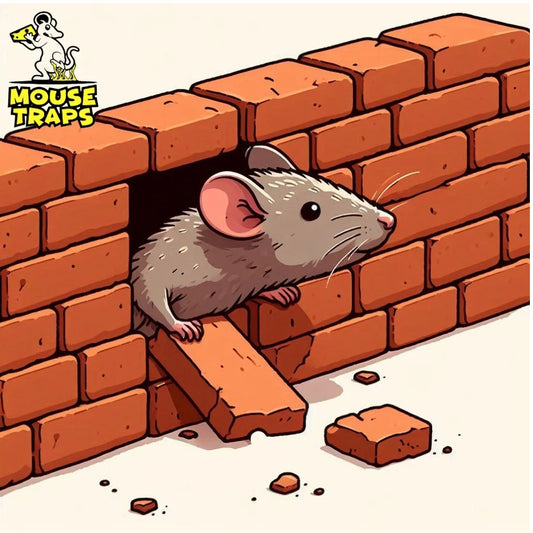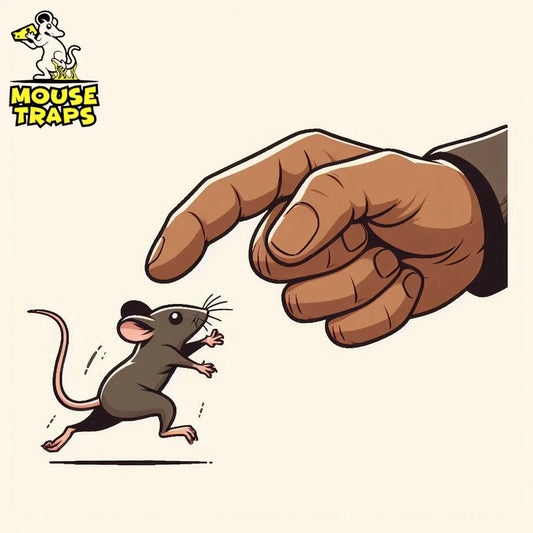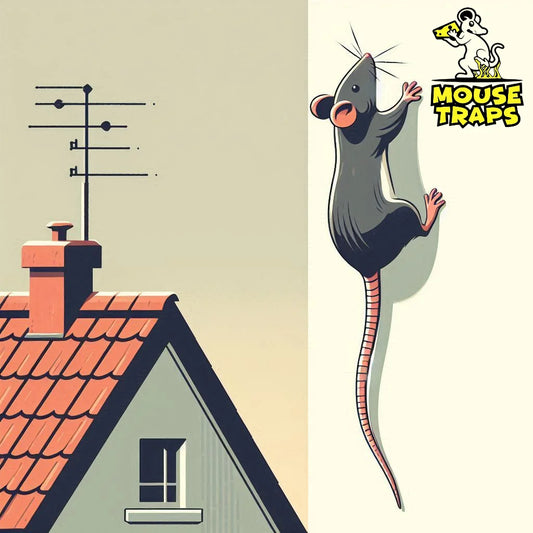Introduction:
Unwanted visitors, like rats can bring about health hazards and harm to properties when they invade homes. Historically managing rat populations has relied on the application of chemical pesticides and rodenticides which may have effects, on the environment, wildlife and people alike. However, with a growing awareness of environmental issues and a desire to live more sustainably, many people are seeking eco-friendly alternatives for rat control in the UK.
Eco Friendly Methods:
Natural Predators: Encouraging the presence of natural predators such as owls, hawks, and certain snake species can help control rat populations naturally.
Rodent-Repellent Plants: Certain plants like mint, lavender, and euphorbia can repel rats due to their strong scents. Planting these around your property may help deter rats.

Ultrasonic Repellents: Ultrasonic devices emit high-frequency sounds that are unpleasant to rodents but safe for humans and pets. These can be placed around your property to deter rats.
Sealing Entry Points: Rats often enter buildings through small gaps and holes. By sealing off these openings using wire mesh or similar materials you can stop rats from getting into your property.

Integrated Pest Management (IPM): This strategy emphasizes the use of techniques to manage pests such, as rats, in a way that reduces harm to the environment. This could include maintaining cleanliness adjusting habitats and employing eco control methods selectively.
Although these methods are effective at some point but they are all slow and difficult and do not make sure the removal of rodents. For better result you should choose mouse traps as they are more effective in all ways compared to these methods, some details about mouse traps and where to buy them.
Mouse Traps:
-
Effectiveness: Mouse traps are highly effective at capturing and killing mice quickly when properly set and baited.
-
Safety: They are generally considered safer than poisons, especially in homes with children and pets, as there is no risk of accidental ingestion.
-
Targeted: Traps allow for targeted control, as they only affect the mice that come into direct contact with them.
-
Visible Results: Traps provide visible evidence of success, as dead mice can be easily disposed of, reducing the risk of unpleasant odors from decomposing rodents.
-
Reusable: Many mouse traps are reusable, making them a cost-effective option for long-term rodent control.
-
Humaneness: Some types of traps, such as live traps, offer a humane way to capture and release mice without causing harm.
Live Humane Traps:
- Live humane traps are designed to capture rats without harming them.
- These types of traps usually include a cage or container, with a door that shuts once the rat goes inside stopping it from getting out.
- They are often baited with food to attract the rats.
- After catching them the rats can be set free in an environment that's more appropriate and far, from where people live.

Benefits:
- Humane: Live traps allow for the capture and relocation of rats without causing harm or suffering.
- Environmentally friendly: These traps do not involve the use of chemicals or poisons, making them safe for the environment and other animals.
- Safe for pets and children: Since live traps do not use toxic substances, they pose no risk to pets or children if accidentally encountered.
- Legal compliance: In many areas, live traps are considered a humane method of pest control and may be preferred by authorities and animal welfare organizations.
- Reusable: Live traps can be reused multiple times, making them a cost-effective option for long-term rat control.
Sticky Glue Pad Traps:
- Sticky glue pad traps consist of a sticky adhesive surface mounted on a flat board or pad.
- Rats become stuck to the adhesive when they walk over the trap.
- When rats get caught they often try hard to break free which can tire them out and sadly lead to their demise.
- These snares are frequently set with enticing food or positioned along routes that rats traverse to boost their efficiency.

Benefits:
- Easy to use: Sticky glue pad traps are simple to set up and require no additional bait or assembly.
- Cost-effective: Glue traps are generally inexpensive and can be purchased in bulk for larger infestations.
- No risk of secondary poisoning: Unlike some chemical methods of pest control, glue traps do not pose a risk of secondary poisoning to pets or wildlife that may consume poisoned rats.
- Versatile: Sticky glue pad traps can be placed in various locations both indoors and outdoors, making them suitable for use in homes, businesses, and agricultural settings.
- Non-toxic: Glue traps do not contain any toxic substances, making them a relatively safe option for pest control in environments where chemical use is restricted or undesirable.
It's important to note that while both live humane traps and sticky glue pad traps can be effective for rat control, each method has its own advantages and limitations. Deciding between the two options will rely on factors, like preferences, ethical concerns and the particular situation of the pest issue. Also it's an idea to look into rules about using these traps since some areas might have rules or suggestions, for humane pest management.
Conclusion:
Rats are not welcomed in households as they bring health hazards and property destruction. Typically managing rat numbers has relied on chemical pesticides and rodenticides which may have effects, on the environment, wildlife and people. However, with a growing awareness of environmental issues and a desire to live more sustainably, many people are seeking eco-friendly alternatives for rat control in the UK.




